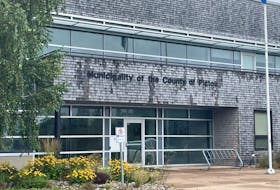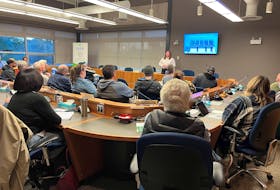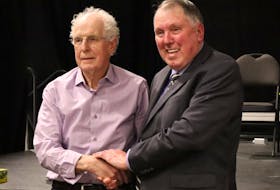Fundy Dulse, a small, family-run dulse harvesting business in Digby County, N.S., wanted to expand its business through increased harvestable dulse resources, but only in a sustainable, ecologically-sensitive way. The solution - a partnership with St. Francis Xavier University’s biology professor Dr. David Garbary, an internationally recognized expert on seaweed, and his two honours biology and aquatic resources students, Leah Beveridge, Andrea Flynn, master’s student Katie White, and StFX math professor Dr. Ryan Lukeman.
The StFX research team found critical information on how Fundy Dulse can expand its business. Their findings also resulted in two articles.
“This work is really interesting from a number of perspectives,” says Dr. Garbary. “It’s collaboration between university and industry and government.The research also sheds important light on both sustainability and the ecology of dulse.
Dulse is an edible seaweed that grows naturally in clean, clear cold ocean waters.
The project began in winter 2010 when the husband and wife team of Wanda and Calvin Vantassel of Fundy Dulse, based in Gulliver’s Cove on Digby Neck, wanted to know if harvesting dulse was sustainable. “They wanted to expand the amount they are harvesting, and wanted to know if that’s possible,” Dr. Garbary says.
That summer, he involved two of his summer research students, Ms. Beveridge and Ms. Flynn, in the project. During his sabbatical year, he spent six months in the area researching dulse and other seaweed.
Dr. Garbary also asked Dr. Lukeman, who teaches a mathematics course on modeling, to collaborate. “You have to be able to model how much is there and how much you can take from it at any time,” Dr. Garbary explains. “We determined, that yes, it was sustainable, the harvesting was not destroying the resource, and we made some really interesting insights into the ecology of dulse,” Dr. Garbary says. “We now have a better idea of where dulse can grow to make it sustainable.”
StFX Industry Liaison Manager Andrew Kendall says industry and academic research development partnerships are beneficial to all involved. Fundy Dulse benefits through applying the research findings of the StFX team to expanding its business in a sustainable, ecologically-sensible way. The StFX faculty members and students publish their research in a prestigious, international journal.








